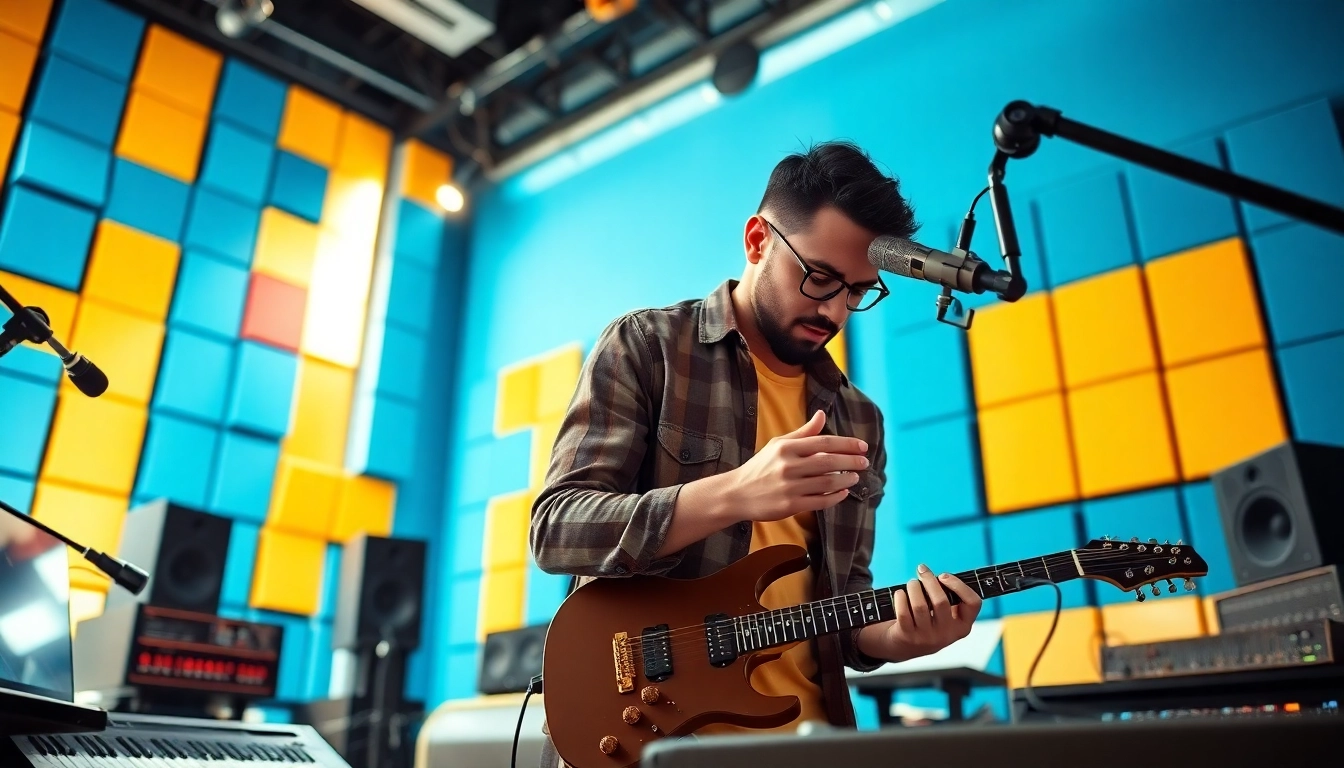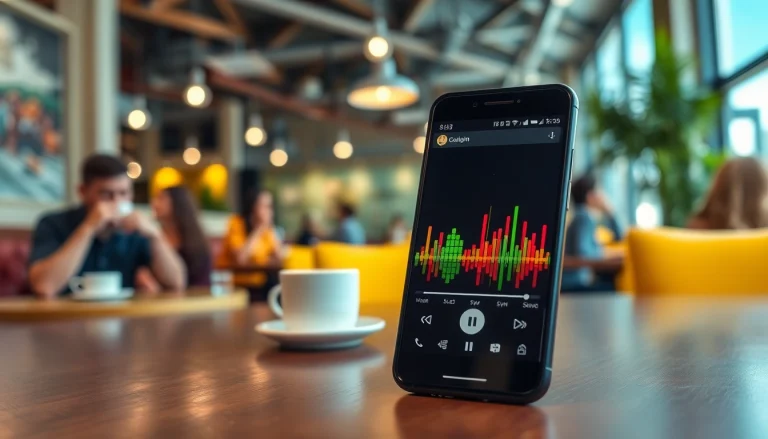
Understanding the Essence of Innovation in Music
The Definition and Importance of Innovation
Innovation in music refers to the introduction of novel ideas, techniques, and technologies that significantly enhance the way music is created, produced, and consumed. This multifaceted concept is not limited to the adoption of new technology but extends to how musicians approach songwriting, collaboration, and audience engagement. As the music industry evolves, innovation becomes increasingly crucial for survival and relevance. It fosters creativity, encourages artists to push boundaries, and allows for a more personalized listening experience. In today’s hyper-connected environment, where genres blend and new styles emerge, innovation is the key to standing out and capturing listener interest.
Historical Context: How Innovation Has Shaped Music
Throughout history, innovation has played a pivotal role in the evolution of music. From the invention of the phonograph in the late 19th century, which revolutionized how music was recorded and distributed, to the rise of digital platforms today, each technological advancement has changed the music landscape. The introduction of synthesizers in the 1960s and 1970s allowed musicians to explore new sounds, leading to genres such as electronic and pop music. Moreover, the advent of the internet has democratized music access, enabling artists to distribute their work globally without reliance on traditional record labels. This rich historical tapestry of musical innovation highlights the continual adaptation and transformation that the industry undergoes.
Current Trends in Musical Innovation
Today, several trends signify the ongoing relevance of innovation in the music industry. First, the rise of artificial intelligence (AI) in music creation is noteworthy. Tools that can compose melodies, assist with lyrics, or even perform music have emerged, challenging our traditional definitions of authorship and creativity. Furthermore, virtual reality (VR) and augmented reality (AR) technologies are creating immersive concert experiences, reshaping how audiences experience live music. Streaming platforms continue to innovate with algorithm-driven site personalization, influencing music discovery and audience engagement in unprecedented ways. Lastly, collaborative platforms that leverage remote working are reshaping how musicians from different corners of the world can come together to create and share their work.
Tools and Technologies Driving Musical Innovation
State-of-the-Art Equipment for Modern Musicians
Modern musicians have access to an array of state-of-the-art equipment that empowers them to explore creativity in ways previously thought impossible. High-definition microphones, digital audio workstations (DAWs), and versatile synthesizers enable artists to produce intricate sounds with ease. Notably, MIDI controllers have transformed the landscape; these devices allow musicians to play, compose, and record using software, speeding up the entire production process. Moreover, advancements in mobile recording technology mean that artists can capture high-quality sound on the go, making recording more accessible than ever before.
Software Innovations Revolutionizing Composition
Software innovations are at the forefront of modern music creation and collaboration. Programs like Ableton Live, Logic Pro, and FL Studio offer sophisticated features that streamline the composition process. Additionally, plugin technology allows musicians to access a wealth of sounds and effects with minimal investment. Cloud-based collaboration tools like Splice offer artists the ability to share projects and resources instantaneously, fostering a collaborative environment regardless of geographical constraints. AI-powered composition tools, such as AIVA (Artificial Intelligence Virtual Artist), are making headway in assisting artists, suggesting chord progressions, or even composing entire tracks based on minimal input from the user.
Case Studies: Success Stories of Innovative Music Production
Several case studies exemplify how innovation leads to success in the music industry. For instance, the band OK Go is renowned for its creative music videos, which often utilize cutting-edge technology and concepts, thereby expanding their brand beyond mere audio into visual theatricality. Another example is the rapper Lil Nas X, whose innovative use of TikTok as a marketing platform turned “Old Town Road” into a genre-blending, record-breaking hit. Such instances underscore the impact of embracing innovation—not only in music production but also in marketing strategies and audience engagement, driving home the importance of adaptability in today’s market.
Fostering a Culture of Innovation in Music Communities
Encouraging Collaboration and Idea Exchange
To nurture innovation, music communities must promote collaboration and the exchange of ideas. Environments where artists can share skills, experiences, and insights lead to groundbreaking music creation. Workshops and jam sessions serve as excellent venues for this exchange, often leading to unexpected musical fusions and shared projects that might not have been realized in isolation. Notably, local music scenes or collectives that prioritize inclusivity and diversity tend to foster richer creative atmospheres, as diverse perspectives spark novel ideas.
Workshops and Initiatives for Aspiring Innovators
Workshops designed for aspiring musicians can play a significant role in enhancing creativity and innovation. Initiatives like master classes with industry veterans, songwriting camps, and interactive webinars provide aspiring musicians with necessary skillsets and insights into various facets of the industry. These educational endeavors can empower participants to explore innovative techniques that align with their artistic visions, fostering their growth and expanding their potential for future contributions to the music landscape.
Networking and Online Platforms for Musicians
Online platforms such as Bandcamp, SoundCloud, and social media networks have revolutionized how musicians connect and interact. These platforms offer artists not only an avenue to share their music, but a means to network with other creatives, influencers, and industry professionals. Tools like Discord servers or Facebook groups centered around music production foster constructive dialogue and collaboration, enabling musicians to exchange ideas and feedback on their works, thus perpetuating a cycle of ongoing innovation.
Challenges of Implementing Innovation in Music
Overcoming Resistance to Change
Despite the myriad benefits of innovation, resistance to change remains a common challenge within the music industry. Artists, producers, and even audiences can be hesitant to embrace new technologies or methods, favoring established practices instead. To overcome this resistance, education and demonstrative results are crucial. Providing workshops showcasing successful use of new tools or technologies may influence artists and stakeholders to explore new opportunities. Highlighting positive case studies can also inspire musicians to adopt innovative approaches to their work.
Balancing Tradition with Modern Techniques
Another challenge faced by many musicians is striking a balance between tradition and innovation. While some genres thrive on traditional techniques, others may suffer when modernization is overemphasized. Artists must find a way to respect and draw inspiration from their roots while experimenting with contemporary trends and technologies. This balancing act can be achieved through conscious blending of styles, ensuring that the essence of traditional music remains integral to the innovative sound being developed.
Addressing the Accessibility of New Technologies
The rapid advancement of technology can lead to disparities in accessibility that hinder some artists from innovating. High costs associated with cutting-edge gear and software can exclude many talented musicians. To address this issue, organizations and institutions should focus on democratizing access to quality equipment and educational resources. Initiatives could include community-based music production studios and scholarships for learning programs, enabling those from underprivileged backgrounds to gain experience with innovative tools and techniques.
Measuring the Impact of Innovation in the Music Industry
Key Performance Indicators for Success
To assess the impact of innovation within the music industry, clear metrics must be established. Key performance indicators (KPIs) such as streaming numbers, audience engagement rates, social media following growth, and sales figures can provide insight into the success of innovative strategies. Additionally, qualitative measures, such as audience feedback and critical acclaim, can deepen the understanding of how innovation resonates with listeners. Regularly tracking these KPIs allows artists and industry professionals to adapt their strategies, ensuring consistent growth and relevancy.
Feedback Mechanisms for Continuous Improvement
Establishing effective feedback mechanisms is vital for continuous improvement in innovative initiatives. By interacting with audiences through surveys, focus groups, and social media responses, artists can gauge how well their innovative practices are being received. Additionally, peer reviews and mentorship programs can provide constructive insight into areas requiring adjustment or enhancement. Cultivating a feedback-rich culture ensures an iterative approach to innovation, facilitating ongoing learning and growth.
Future Projections: The Next Wave of Musical Innovation
Looking ahead, the future of musical innovation appears bright yet uncertain. Trends suggest that AI and machine learning will become increasingly integrated into music creation, providing tools that can assist musicians in real-time. Virtual concerts, generated by VR and AR advancements, may become mainstream, offering audiences unprecedented experiences. Furthermore, as blockchain technology gains traction, the music industry might witness more equitable distribution models, empowering artists while protecting their intellectual property. As these changes unfold, staying adaptable and receptive to new developments will be crucial for musicians aiming to thrive in a transforming landscape.






